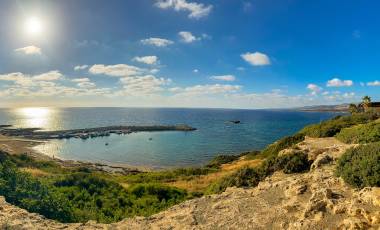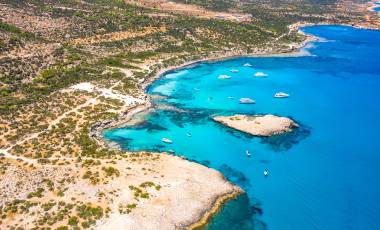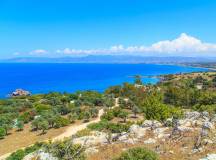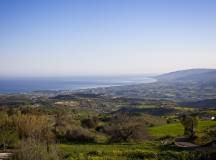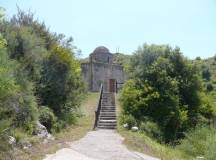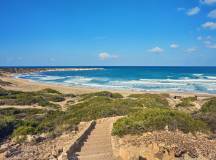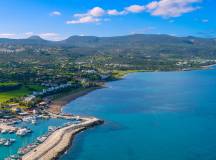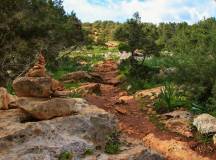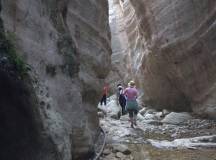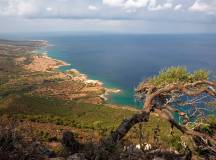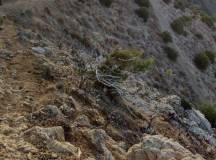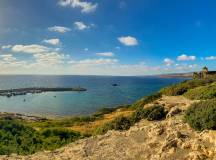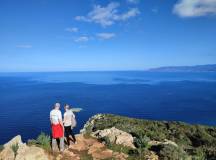The crossroads to Africa, Europe and Asia with an almost unrivalled history stretching back thousands of years, and the beaches are pretty good too!
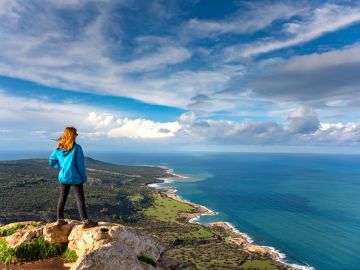
Cyprus Tours
Our Top Destinations in The Republic of Cyprus
Trips to Cyprus
Top 5 Sites to Explore on Cyprus Tours
Baths of Aphrodite: Named after the cave where legend says Aphrodite, the Goddess of Love, bathed in its spring waters, the Baths of Aphrodite is a magical place. If you want to go in search of the spring during trips to Cyprus, you’ll find it running along the easternly slopes of Akamas. The intoxicating blend of natural scenery and ancient myths has an ability to stir the soul of anyone that visits here. Also, according to legend, this is where Aphrodite met Adonis and he fell in love with her after drinking the water from inside the cave.
Caledonia Waterfall: Claiming to be one of the tallest waterfalls in Cyprus, the Caledonia Waterfall is an incredible natural sight that takes its name from the swallows that can be heard singing in the trees. The falls can be found in the heart of an enchanting forest close to the village of Platres and can be reached via an idyllic trail that runs from the village. Along the route you’ll come across various species of flora and fauna that are indigenous to Cyprus.
Agios Georgios tis Pegeias: The archaeological site of Agios Georgios tis Pegeias is certainly worth exploring during your trip. The village of Pegeia is a well-known pilgrimage site and in the 1950s excavations began to reveal an early Christian settlement. This was a fascinating find as three basilicas and a 6th-century bath were uncovered. Historians believe that the settlement was once a port where ships carrying grain from Egypt would dock. A tour of the site lets you delve into the past as you walk around the necropolis and basilica ruins.
Laona Plateau: Rising 600 metres above sea level between the Akamas Peninsula and Polis Chysochous, the Laona Plateau plays host to some of the most picturesque villages in the region. As you explore the villages on trips to Cyprus you’ll learn about the Cypriot culture and the local winegrowing region that produces some of the finest wines in the country. And Laona isn’t without eye-catching views either. Looking out across the sea and the distant mountains, the coastal panoramas from here are some of the best you’ll see on Cyprus tours.
Troodos Square: Experience the colourful Cypriot culture at Troodos Square, a picture-perfect spot that can be found high up in the mountains. Shaded by leafy canopies, pebbled streets are home to café bars, traditional shops and markets selling local produce such as soutzoukos, various types of nuts and Commandaria wine, a sweet dessert wine that’s made in the foothills of the mountains. Looming above the central playground, stunning mountain scenery invites you to explore surrounding nature trails where you’ll find endemic species of animals.
The Adventure Begins Here
Get regular inspiration straight to your inbox from Exodus’ experts.
